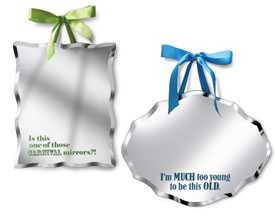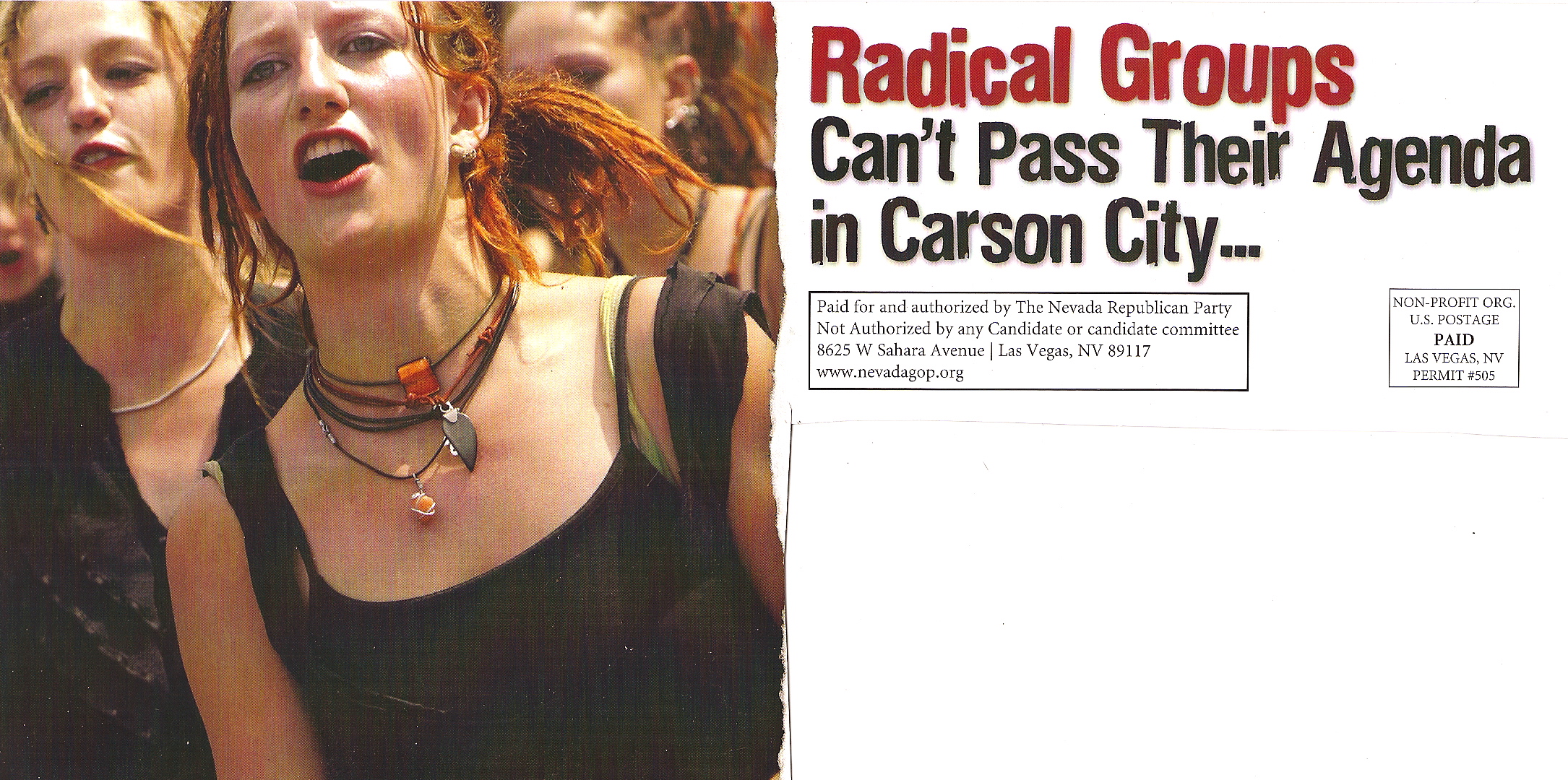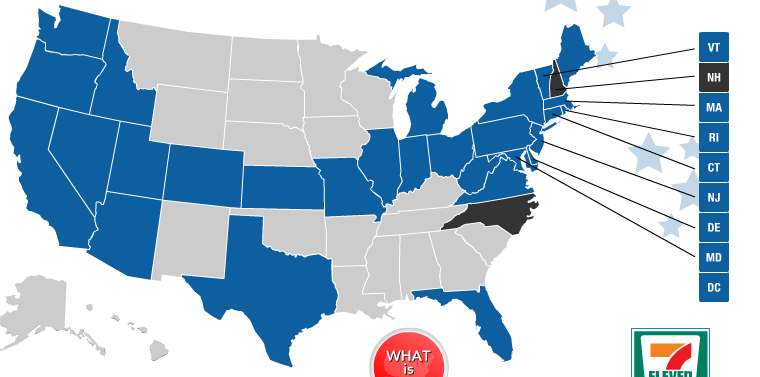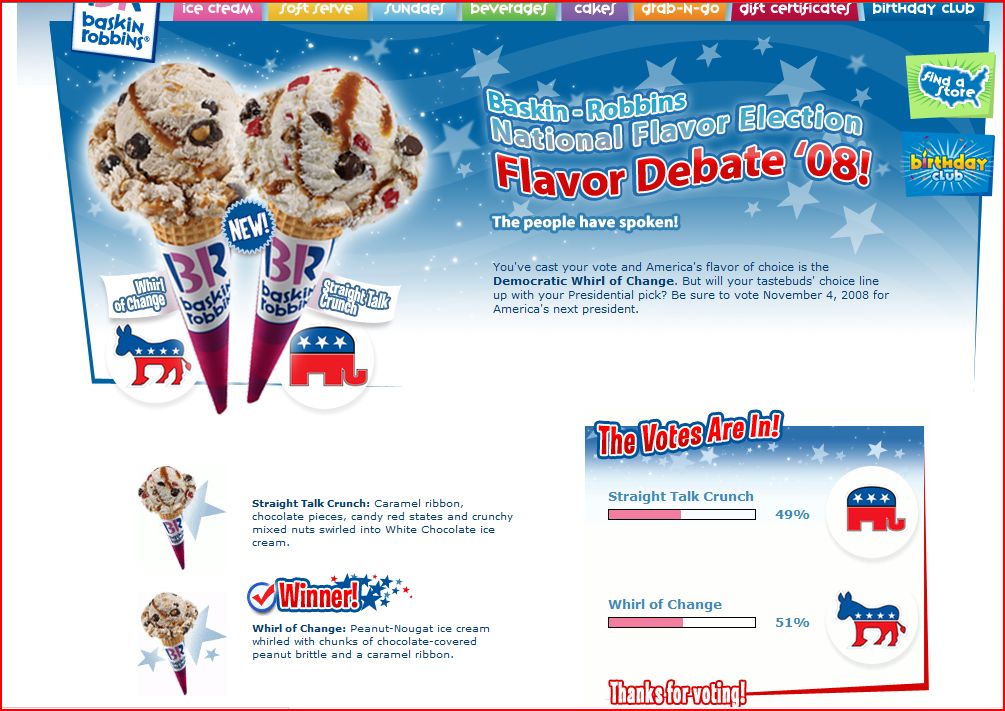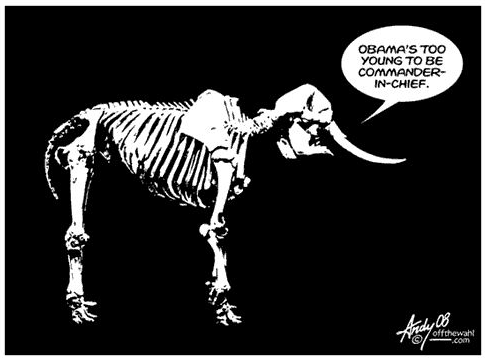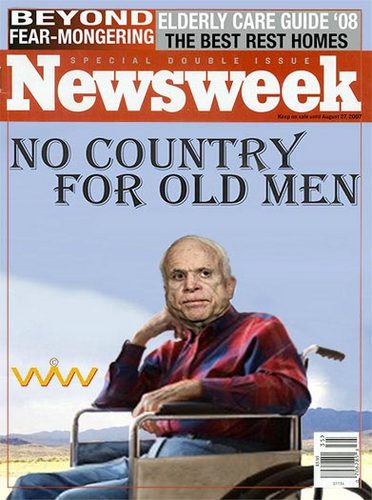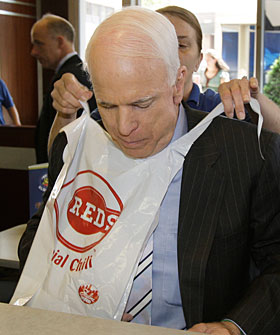p.j. sent in this radio clip from Howard Stern’s show. Some guy (not associated with Stern’s show, from what I can tell) went to Harlem to ask people if they supported Barack Obama. He would then present some of McCain’s proposed policies but say they were Obama’s and ask people if they agreed with the stance. People overwhelmingly agreed with McCain’s proposals when they were told the proposals were Obama’s. The guy hints that this is because Black people are voting for Obama simply because he’s Black.
Now, I’m sure that in some cases that’s true, just as it’s true that some White people are voting for McCain just because he’s White (hi, Mom!). And the lack of basic knowledge about the stances of the two candidates makes my head hurt.
But I suspect that if you did a similar experiment with other groups of voters, you would find a similar tendency–that is, I think lots of groups choose their prefered candidate based on all types of factors and may not have a thorough (or even vague) understanding of any specific policies. I am sure you could tell my grandma that *anything* was a Bush policy and she would say she supported it. I find it highly unlikely that this is something unique about Black voters, or even Obama supporters more generally. I would be willing to be that a decent portion of the electorate isn’t highly knowledgeable about the candidates’ stances and, once they’ve chosen a candidate (which might be because of race, but just as well might be because of the that they’re from, party affiliation, or that whole thing about being someone voters could “have a beer with”), would support whatever policy they were told the candidate supported. You can read that as voters being uneducated or stupid, but you could also see it as a rational reaction to the complexity of many issues: as a voter, you choose the candidate (or party) you believe in general has an outlook that will lead to the best decisions about public policy, and you assume that that candidate’s policies are probably preferable to what the other side would offer.
The other thing to keep in mind, which may be difficult for those of us who are political geeks and news junkies to really comprehend, is that not everyone is familiar with what phrases like “pro-choice” or “pro-life” mean. If you don’t care about politics that much, or about abortion as an issue, then those terms may be meaningless. I could be wrong here, but I bet my mom wouldn’t have a clear, immediate knowledge of which side of the issue each term refers to. So it’s possible that some of the individuals saying they liked Obama for being “pro-life” may not have even interpreted the phrase in relation to abortion.
This could be useful for a discussion of how things are attributed to race if non-White people are involved. On the way to work I was listening to a call-in show and a woman called in and identified herself as African American. She said that people keep thinking she’s voting for Obama just because he’s Black, but that they’re missing the important factor: she’s voting for him because he’s a Democrat, and she’d vote for a White Democrat over a Black Republican without hesitation. While I’m sure some of the people in the radio clip were loyal to Obama because of race, it’s also possible that some are just die-hard Democrats who vote for the Democratic candidate no matter what. I’m not saying that’s a good way to pick a candidate, just that the automatic assumption that African Americans who support Obama but don’t seem highly knowledgeable about his agenda are voting simply based on race might be inaccurate.
Thanks, p.j.!

